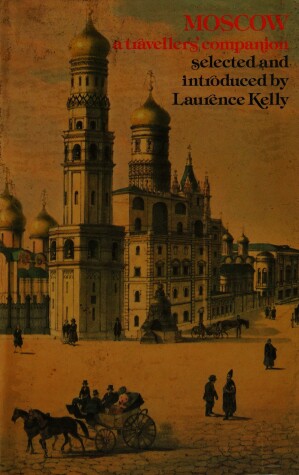The Travellers' companion
2 total works
Founded in 1147, Moscow was for much of its early history in thrall to other nations - to the Khans, the Tartars and the Poles. The city was devastated by fire time and again, but with each rebuilding, it grew ever more magnificent. For every church that was destroyed, it seemed that two more were built.
In this evocative and fascinating anthology, Moscow's turbulent growth is recorded through the voices of visitors and residents: Peter the Great's bloody reprisals after the revolt of the streltsy in 1698; a visit to the city's brothels by medical students in the 1890s; Kutuzov abandoning Moscow to Napoleon in 1812, and Napoleon's ignominious retreat from the burning city; Pushkin railing against the mindlessness of 1830 society; the flowering of literary greatness in the ninenteenth century and of the Moscow Art Theatre in the twentieth; and the dazzling profusion of jewels in the Treasury of the Kremlin.
These and many other milestones in over seven hundred years of history are brought vividly to life.
Istanbul, A Traveller's Reader is an wide-ranging and carefully chosen selection of writings, offering a richly layered view of Byzantine Constantinople and Turkish Istanbul. During the thousand-year Byzantine empire that followed its founding by Constantine the Great, Istanbul became a city of fabled riches; after falling to the Turks in 1453, its glories continued, maintained by the strength and wealth of the Ottomans.
Drawing on diaries, letters, biographies, travelogues and poems from the sixth century AD onwards, this evocative anthology recreates for contemporary visitors the vanished glories of Constantinople. It provides vivid eyewitness accounts of the coronation of a Byzantine emperor; the funeral of a sultan; the triumphal entry of Mehmet the Conqueror; the building of the Suleymaniye, the most magnificent of the city's moques; and the death of Ataturk in 1938.
It also describes the rampant sexual exploits of the Byzantine empress-to-be Theodora; the public execution of a Turkish wife and her young, Christian lover; the near execution of an envoy given the unenviable task of transporting a large organ from England to Constantinople in 1599, a gift from Queen Elizabeth to Sultan Mehmet III, who was caught admiring the sultan's personal harem; and the unfortunate Frenchman caught drinking wine and eating a pork sausage while sketching in Hagia Sophia in the 1680s.

